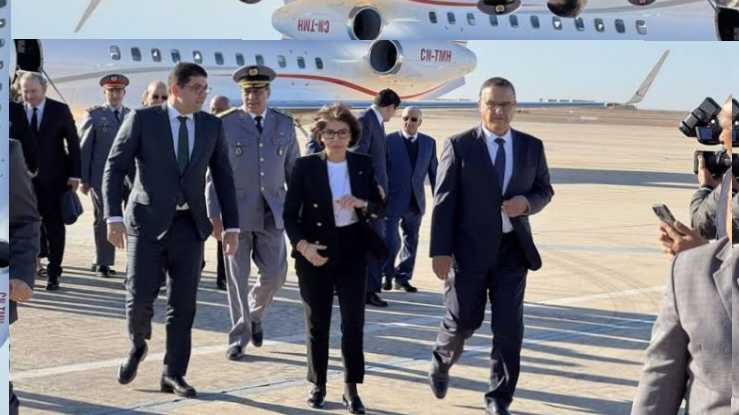France Strengthens Support for Morocco with Landmark Western Sahara Visit
French Culture Minister Rachida Dati commenced an official visit to Western Sahara on February 17, 2025, signaling France’s reinforced support for Moroccan sovereignty over the disputed territory. This visit marks the first time a French minister has formally traveled to the region, underscoring a significant shift in France’s foreign policy stance.
During her visit, Minister Dati is scheduled to meet with local officials and inaugurate a French cultural center in Laayoune, the largest city in Western Sahara. She described the occasion as a “strong symbolic and political moment,” reflecting France’s commitment to strengthening cultural and political ties with the region.
This development follows a series of diplomatic engagements between France and Morocco. In July 2024, France became the second permanent member of the United Nations Security Council, after the United States, to officially endorse Morocco’s autonomy plan for Western Sahara. President Emmanuel Macron further solidified this position during his state visit to Rabat in October 2024, where he addressed the Moroccan Parliament, affirming that “Western Sahara was Moroccan.” During this visit, France pledged to expand its consular presence in the territory and signed economic agreements with Morocco totaling over €10 billion.
The French government’s support for Morocco’s claim over Western Sahara has elicited strong reactions from Algeria, a staunch supporter of the Polisario Front, which advocates for the region’s independence. Algeria’s foreign ministry condemned France’s stance, describing it as reckless and undermining the territory’s independence.
Morocco’s diplomatic efforts have also garnered support from other nations. Spain, the former colonial power of Western Sahara, has aligned with Morocco’s position, as have Israel and over two dozen African and Arab countries. In March 2022, Spain recognized the Moroccan autonomy initiative as “the most serious, realistic, and credible basis” for resolving the dispute.
The conflict over Western Sahara, which began in 1975 following the end of Spanish colonial rule, has seen various phases of tension and negotiation. In 2020, the Polisario Front withdrew from a United Nations-brokered ceasefire, leading to renewed, albeit low-intensity, clashes in the region. The United Nations continues to advocate for a peaceful resolution, but a lasting solution remains elusive.
Minister Dati’s visit to Western Sahara not only signifies France’s strategic alliance with Morocco but also highlights the evolving geopolitical dynamics in North Africa. As more countries express support for Morocco’s autonomy plan, the prospects for a negotiated settlement to the Western Sahara conflict may be influenced by these shifting international positions.

